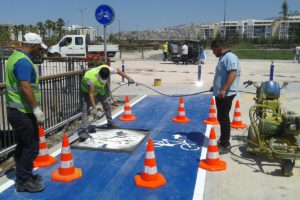Fraud In The Real Estate Business

What is fraud?
Fraud revolves around the idea of being deceptive and fake. It comes in many forms. It may be through identity theft, misrepresentation, and omission of truth. Moreover, all of these may be strongly pledged as fraud if done intentionally to gain profit or credit.
How does a real estate business operate?
Basic operations include buying and selling houses. But it involves many other tasks, such as the following.
Development – This is when property and its surrounding areas get developed, built and rezoned. This is dependant on what kind of real estate it would be (residential, commercial, industrial and land).
Sales and marketing – This involves tackling the price, appraisals and further development according to the kind of real estate decided upon.
Brokerage – Deals with the brokers and agents and whatever agreement sales and marketing have gotten involved in.
Property management – This is where the mortgage, estate tax and anything alike gets handled.
Lending – Housing loans, mortgage loans and any kind of loan involving the purchase of a property.
Professional services (law, accounting, etc.) – This includes services such as notarising the property, marking its authenticity with a conveyancing lawyer, and handling of the deed of sale. Availing services that require fees like secretarial, legal and accounting services fall into this segment.
Fraud
As you can see, all of these areas can open a window for fraud. Hence, it’s essential to take note of how it happens so that you can prevent it from happening.

Veteran fraudsters could forge identification to present themselves as owners of properties to put them on sale.
This may involve changing their names to open bank accounts, solicit deposit money from willing buyers and then disappearing after all of it is done.
These fraudsters disguise as interested buyers or somehow, they rent out properties to collect information from the owner via a title deed. They do it without opting for a mortgage; hence, they can’t be identified in the end because no information is held by the bank.
Another type of fraud that occurs is when mortgage loans are applied for by these individuals. As long as they can get away with it, they’ll repeat the same process of identity theft until such time that the owner receives repayment notices by the bank and alerts the bank they made no such deals.
Here are some tips on how to prevent these crimes from going unnoticed:
- Do guard against questionable and suspicious agents, solicitors’ firms and loan companies.
- Report loss of property right away like wallets that contain all your identification cards, bank cards, and key cards.
- Do corresponding checks on people you deal with. It’s good if you have connections in the real estate business because more often than not, they can inform you of every known real estate broker, business owner and agent.
- Check the notarisation and registration of the title deed. Check the status of property titles diligently and if it’s really for sale or not in the first place. Double-check signatures and receipts. Have a third party witness the deal for everything to stay documented.
- For the property owners, beware of bogus calls and suspicious emails. If the identity of tenants is questionable, such as no ID in hand, ask for pay-checks to their name.
- Foreclosure properties may be the most convenient that you could buy, so gain access to information through the bank manager or anybody available. Stay vigilant when deciding on purchasing properties. Commercial lawyers may be able to assist in cases of commercial property.
There’s nothing wrong with being extra cautious and asking for more identification until you are satisfied that a property is authentic. Real estate fraud had left both buyers and sellers alike with a serious financial burden. This may take more time, but it is worth it to be cautious.







